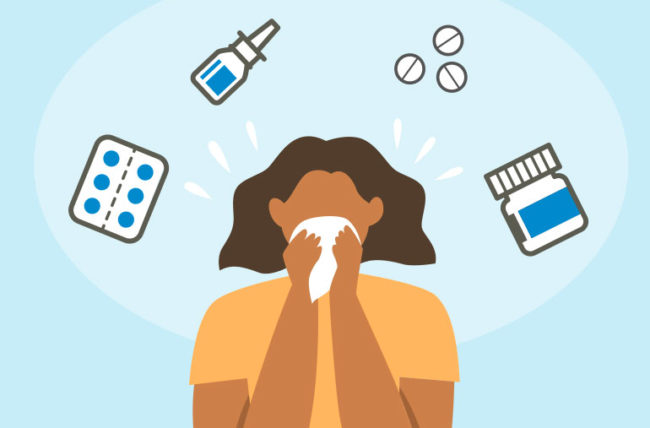5 tips for overcoming Spring allergy
Table of Contents
5 tips for overcoming Spring allergy
The spring season, which begins on March 21 of each year, is associated with the suffering of patients with Spring allergy or pollen allergies. The most prominent symptoms of which are a runny nose, watery eyes, sneezing, coughing, itching in the nose and eyes, and shortness of breath. And they are a real nuisance that may last until the outskirts of summer.
The American Academy of Allergy, Asthma, and Immunology said that pollen allergy could affect people of all ages, especially children. It can affect daily life, such as sleeping through the night, productivity during the day, and the ability to spend time outdoors.
She added that avoiding exposure to pollen is the best way to deal with allergies. It can also be mitigated by taking medications and undergoing immunotherapy. And recently issued 5 recommendations to overcome spring allergy and its disturbing symptoms, as follows:
Minimize outings
In the spring, trees release billions of tiny pollen grains into the air. They are small atoms found inside flowers. When a person breathes in and these grains get stuck in the nose and lungs, they can trigger an allergic reaction. Therefore, staying at home can help a person overcome the problem. Especially when the air blows and during the early morning hours when pollen counts are at their highest levels.
But if you have to go out, it is recommended to wear a hat and glasses to protect the eyes and nose from airborne pollen. In addition to closing car windows when riding in, and operating an air conditioner equipped with a pollen filter. It is preferable to replace it annually, in addition to providing the windows of the rooms with a net to block pollen.
The most beautiful outings in the spring in Saudi Arabia
Trapping the effects of allergens
Make sure to wash your hair and change out of your outdoor clothes once you get home. To avoid allergic irritation during the night. With attention to washing the hair of the head well. Especially before going to sleep, so that the pollen grains do not infiltrate the inside of the pillow and from there into the eyes or nose. It is also recommended to wash the nose by inhaling water on a regular basis.
And if you have pets at home, be sure to wash or wipe their fur every time they go outside, or pollen will get into the house.
Proactive protection
Small changes can be made at home, but they can make a big difference. Closing all windows prevents pollen from entering the house. Alternatively, air conditioners can be used to cool the house.
The shoes can be taken off at the door of the house and the guests are asked to do the same. To keep allergens out, it is advised to clean the floors with a vacuum cleaner to pull out all the microscopic particles from the place.
Precautionary measures
A person can take medications at the beginning of spring before symptoms of watery eyes and sneezing appear. This way the medicines will be present in the person’s body when they are needed.
Consult your doctor
Medical advice is necessary for some advanced allergy cases, with which many precautions did not work. The doctor can diagnose the condition, prescribe the appropriate medication, and give more useful instructions for each case.
Severe seasonal allergies can be treated with medication. There are several different forms of allergy medication including eye drops, nasal sprays, and sedating and non-sedating antihistamines.
As a precaution, it is recommended that the child start the prescribed medication before peak allergy season. This is especially true of hay fever medications, and if your child’s symptoms persist despite the medication. Immunotherapy may also be a treatment option to discuss with your child’s healthcare provider.



Comments